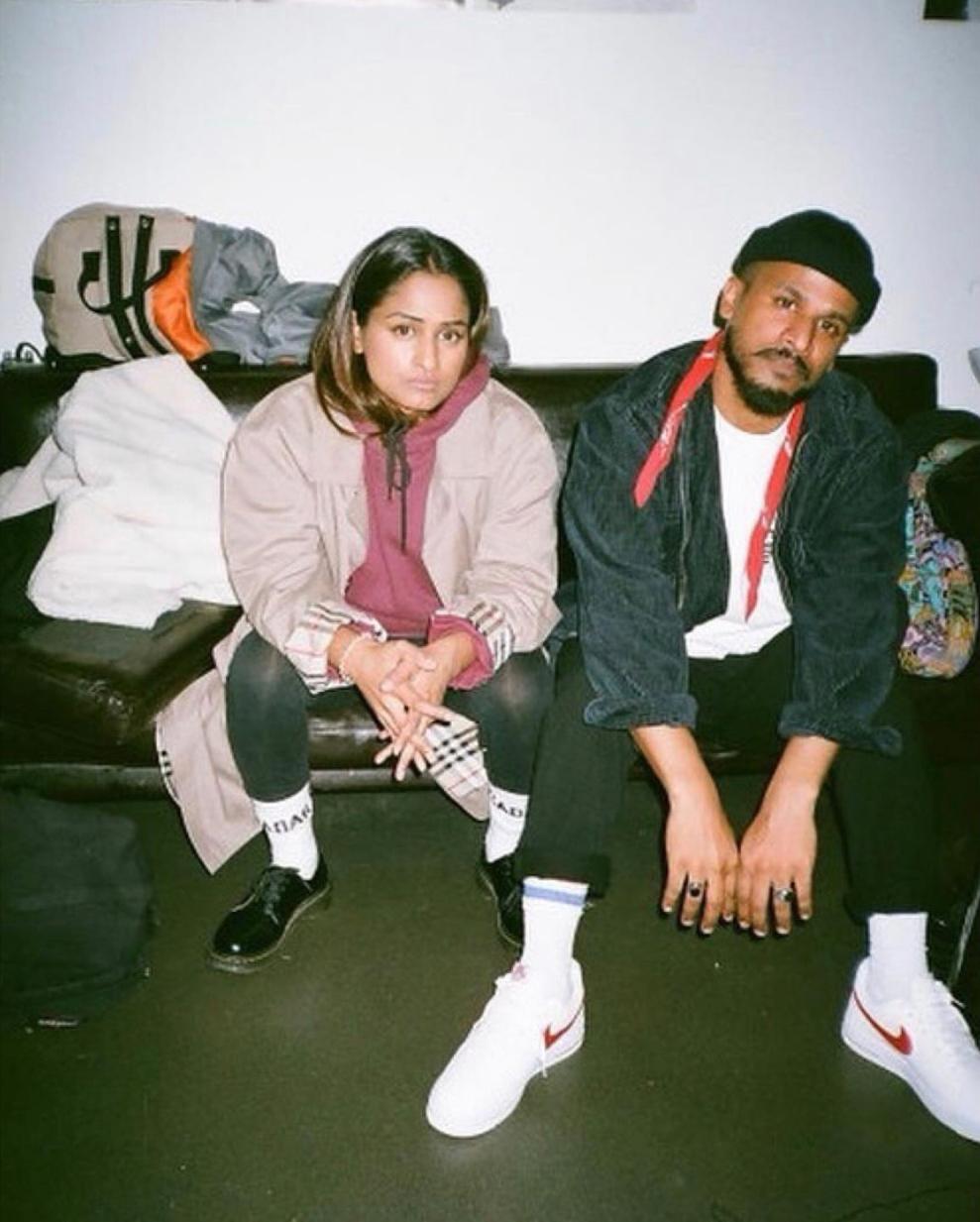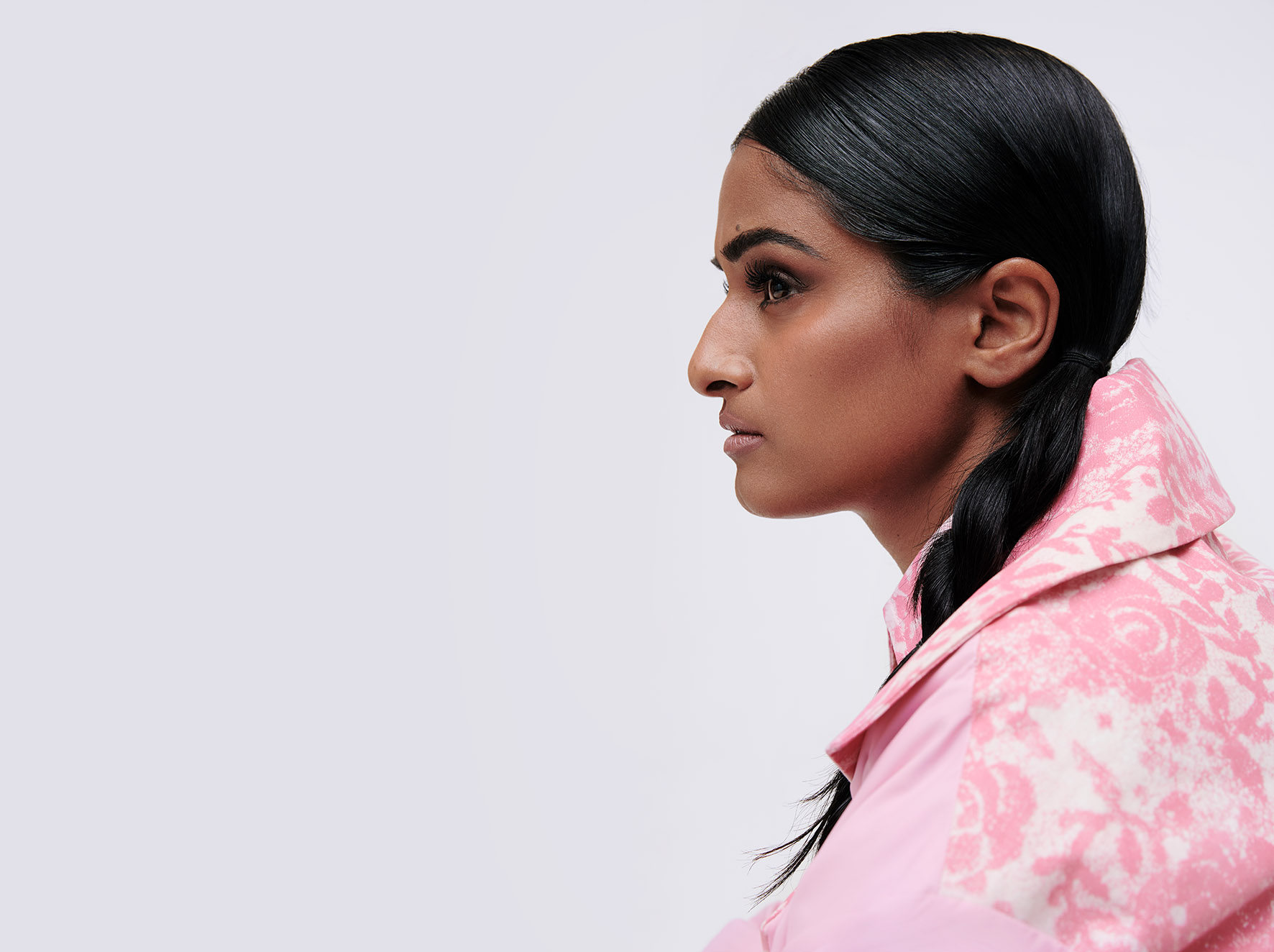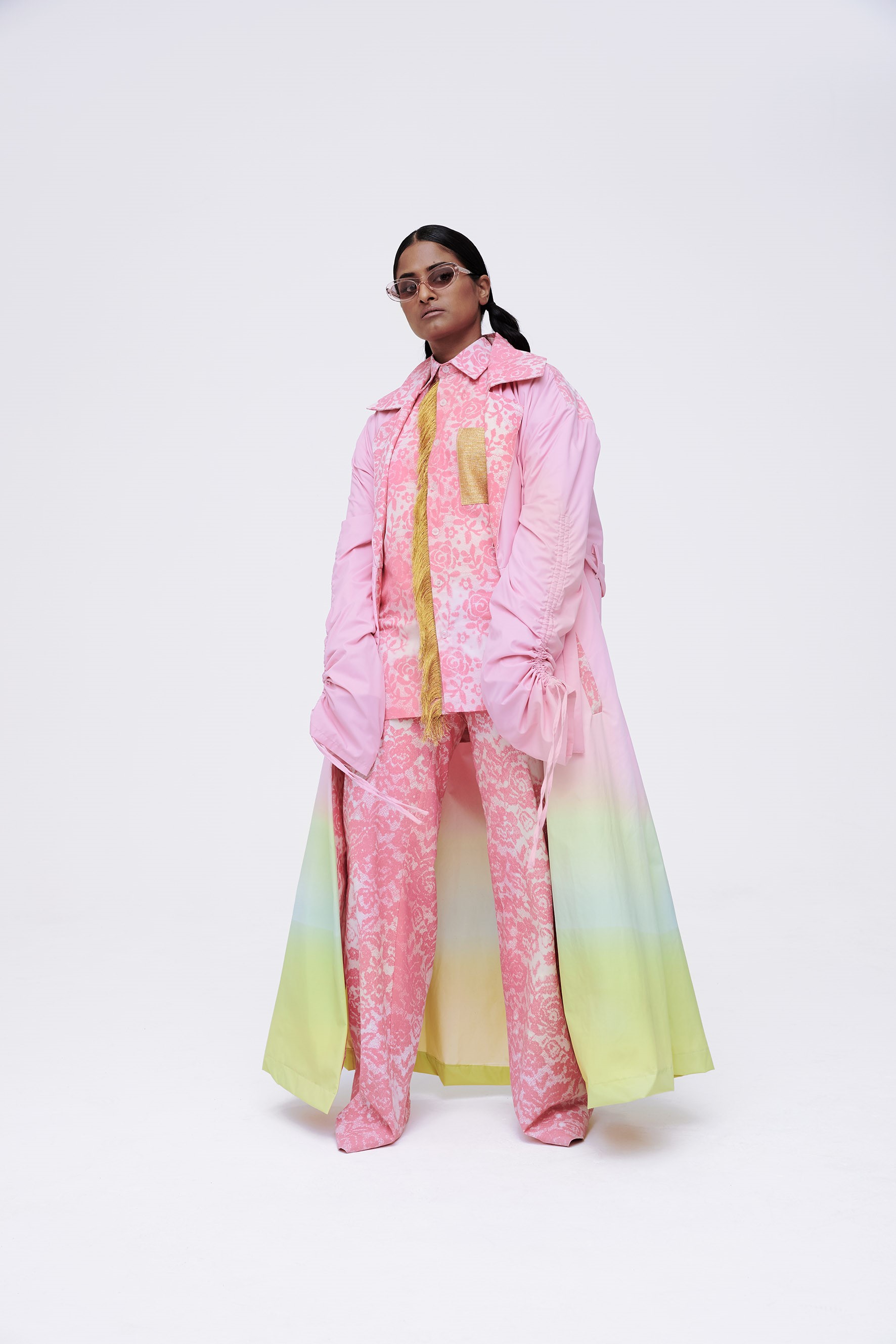When Priya Ragu is asked about her music, so much of the conversation shifts to a focus on her family: their Tamil culture, their scepticism at her budding music career, and their ultimate support of her dreams. But the music that has gained the Tamil-Swiss singer worldwide renown, including being named one of the 6 Musicians About to Blow Up in 2021 by Vogue, featuring as one of the top 100 Essential emerging artists for 2021 by NME and having her single “Good Love 2.0” included on FIFA 21’s official soundtrack, came once Ragu was able to take some time to herself and dedicate space to her creative practice.
“I want to be able to just focus on music,” she told Tamil Guardian. “I never took that time for myself because I was working always. I was being a daughter, I was being a sister, I was trying to fulfil expectations.”
So Ragu took a leap of faith, shed the expectations and pressure, and spent five months in New York City, where she promised herself she would leave with ten full songs. She wrote the songs with her brother, who makes music under the name Japhna Gold and has, since childhood, been her closest collaborator.
“I am so grateful that we are both able to do this journey together,” Ragu said of her brother. “At one point I thought, it cannot be a coincidence that I’m a singer and you’re a producer and we like the same music. You know—that we are taking the same path at the same time. It’s such a blessing; it’s the best thing.”

As children, their father had them sing Tamil songs at events and weddings to collect money to help people in Tamil Nadu and Jaffna, but neither of them was satisfied with limiting their musical talents to community events.
At a young age, Ragu was drawn to R&B and soul, with her earliest inspirations including Stevie Wonder and Brandy. But she also draws from the music of her childhood: A.R. Rahman and Tamil movie soundtracks. Her first performance, when she was just sixteen and, of course, accompanied by her brother, was of the song “Killing Me Softly” at an open mic show in Zurich.
“A lot of people were there and I was so scared. I told my parents you know that I was going to another birthday party! It was the best feeling ever, but I was dying inside because I was so nervous!”
She describes her sound as “Ragu-wavy because it’s not just R&B, it’s not just soul. It’s a mixture of everything—of the Western and South Asian culture. This is who I am as well.”
Her father, who was the first one to ask her to sing Tamil songs, also discouraged her when he first found out she was performing Western music as a teenager. Her parents feared an unstable future for their daughter, and they did not support Ragu pursuing music full-time. But now, her parents have come around to a supportive, protective role. Ragu’s perfect melange of traditional Tamil melodies elegantly compliment the experimental beats and her silky R&B vocals, for which her father leads the praises. “A.R. Rahman brought the Western music into the Indian culture’s music, and we are doing the opposite,” he said.
It was her parents’ love story that in part inspired her biggest single, “Good Love 2.0.” For the music video, which was released in October, Ragu had a vision of filming in Jaffna, where her parents are from and fell in love. They were discouraged, ultimately, by the increasing militarisation in the North-East, and decided instead to film in Goa. This didn’t stop Ragu from bringing a Tamil look to the video, most evident in a shot with Ragu sporting a sari complete with the word Thamizh (?????) printed across the front.
Ragu takes pride in her Tamil identity being a key factor in her music and attributes growing up listening to “interludes of Ilaiyaraaja’s songs and A.R. Rahman songs” as instrumental in the art she and her brother make today.
But like many Tamils, Ragu also recognises the importance of having someone like M.I.A. growing up:
“When I grew up, I had M.I.A – we all had M.I.A. – that was so powerful to see someone from Jaffna doing it big out there and being a voice!”
As for Ragu, her career has already exceeded her expectations of what was possible. This year, while challenging in many ways due to the pandemic, kicked off with “Good Love” being played on BBC in January, after which music labels began to approach her. Since signing with Warner Bros, Ragu has started to release singles leading up to her first full-length album, expected in 2021.

The singer’s unique style of music has won expeditious but worthy international praise - something she did not anticipate. “It’s insane, because I never thought that this could happen in Switzerland as it’s hard to reach the international audience. I’m really glad and thankful more and more people are reaching out from all over the world.”
While the pandemic may have prevented Ragu from performing for her impressively growing fanbase, she takes it as the ideal time to perfect her debut album with her brother and gain practice for live shows.
“I’m really glad that I had so much time to work on the live performance so I can really prepare myself. Now, since it got really serious, I can take my time. My brother and I made so many cool songs and I cannot wait to release them!”
Despite her quick rise to fame, Ragu remains rooted in where she comes from. “I am Tamil-Swiss,” she said.
“Tamil comes first because that’s really where I come from, the culture I grew up with.”
However, it hasn’t always been easy for Ragu to explore her Tamil identity and she regrets growing up in St. Gallen with a lack of Tamil community. “I always felt like I couldn’t connect with other Tamil kids. I just thought they were not really likeminded, you know? Growing up I didn’t have Tamil friends and we didn’t have social media like this”.
It wasn’t until Ragu went to see her cousins in Toronto, where she was able to “really connect and live the Tamil side” of herself. “In Switzerland, I was searching for communities like that, like-minded people. So yeah, it’s a pity I didn’t have that when I grew up.”
Ragu who herself is fluent in Tamil, recalls visiting Chennai a lot during her childhood, where she nurtured her ability to talk the language. When she visits Jaffna, she says her family tells her, “Oh, you don’t sound like a foreigner!” Now, Ragu takes pride in that comment, that she’s able to speak as well as a local. She says that in her current position, she tries to represent her Tamil culture in everything she does.
“If it’s music, visuals, or style—everything—there will be a touch of where I come from. I just want to motivate other young brown women to listen to their voice and just do their thing, to see the bigger picture and believe in themselves. There should be way more brown people out there doing this, what I do right now. That’s my wish.”

*Interview has been edited for length and clarity.*
You can listen to Good Love 2.0 below and follow Priya Ragu on Twitter and Instagram.
